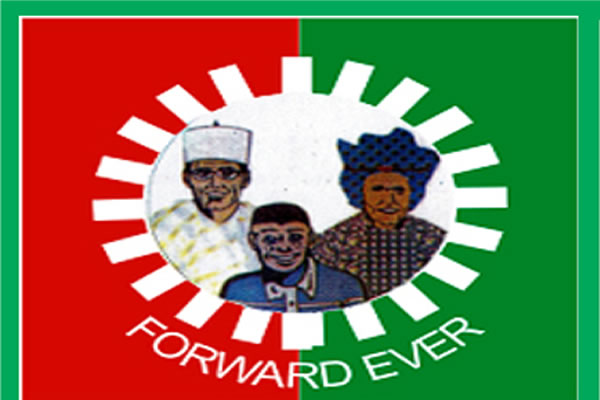By Femi Falana

Since the days of the struggles against colonialism workers and their leaders have always been interested in the question of political power. Generations of the broad left have nursed the consciousness that the problems in the political economy, as they affect the working people, cannot be fundamentally solved if workers are indifferent to the fundamental question: who “authoritatively” allocates resources and in whose interest? Who defines what is development?
The formation of a party of labour has taken different forms beginning with the Labour Party that existed till the end of the First Republic. In the aborted Third Republic a Labour Party was also formed. In all these formations cadres of the Left were involved in shaping the ideological character of the party. In this Fourth Republic the present Labour Party emerged from the efforts of the labour movement and its progressive allies to develop a social democratic platform to seek political power. This happened through critical engagements with the labour movement. Sometimes the debates could be acrimonious and fierce. Contradictions have always been thrown up as a result of these engagements. Failure to grapple with these contradictions probably explains why the Left has not been as active as it should be in the development of the Labour Party.
It is a settled question historically that a Labour Party should articulate social democratic alternatives in policies and present candidates to compete for elections on that platform. In the ideological spectrum Labour Parties are to be found in the centre-left loci as major or marginal parties depending on their strengths due to national peculiarities.
That has virtually been the global experience from Australia to Canada. The few cadres of the Left who have shown interest in the activities of the Labour Party have often been accused of being “doctrinal” for the simple that they insist that the programme of the Labour Party should be fundamentally defined by a commitment to social justice and the provision of public goods.
The Labour Party should be committed to the protection of social-economic rights of the people in the course of managing the economy. The party programme should include policies to enable creation of jobs in agriculture, industry and the services. It should have commitment to the protection of these jobs with the payment adequate wage. The periodic review of the minimum wage should be a policy of the Labour Party. As a result, the roles of government and market in the economy have to be defined with a sufficient clarity of purpose.
In the Nigerian context of mass poverty and deepening inequality, the Labour Party should demonstrate in its programme that market forces alone to cannot deliver these goods. Hence its programme should include government’s commitment to public education, healthcare delivery, social protection, mass transit, social housing, etc. The Labour Party will have on its programme policies to ensure physical security and social security. The link between the two should be emphasized.
The usual conservative question is often this: how will the delivery of public goods be financed by a social democratic government? From the right-wing ideological perspective the role of the state should be reduced if not eliminated. The Labour Party response should be that the state certainly has role to play as the crisis of global capitalism has taught people in the last 20 years. The state in United States rose stoutly to save private companies during the crisis. So instead of parroting the dogma that the state has no role in socio-economic sectors, the Labour Party should come up with productive ways to fund the delivery of public goods.
This principle should inform policy options on privatization, the fiscal regime, monetary policies etc. First, the rich should be compelled to pay adequate tax in their own interest as well as public interest. Policies to boost productivity should be enunciated so that economic actors in the industry, agriculture, and services would be in position to pay higher taxes. Britain is currently imposing a “windfall tax” on giant oil companies in order to finance social programmes and to combat the descent into poverty by segments of the British population. Secondly, wastages should be stopped. Thirdly, priority should be given to human development.
With the foregoing as a sketch of general principles of the Labour Party programme, it is worth proposing that the broad Left should find a basis to engage the Labour Party on its existing aims and objectives. These include the express commitment to social democracy, the principle of inclusion, public education, universal healthcare coverage, equity and justice.
Such demands are in consonance with the Fundamental Objectives and Directive Principles of State Policy embodied in the Chapter II of the 1999 Constitution. This chapter of the Constitution is a comprehensive manifesto of social democracy. If all the political parties in the land which run governments at the various levels since 1999 have the same aim about the Chapter II, Nigeria could have transformed into a political economy along the path development being pursued by the Scandinavian countries.
Chapter II of Constitution has been a recurring feature of all constitutions written in this country since 1979. It is worth reminding the Nigerian Left that Chapter II is in many ways a product of the ideological push from the Left. It is also a vindication of the position that it is not a wrong thing for the Left to be involved in liberal democratic politics.
Two great figures of the Left – Comrades Olusegun Osoba and Yusufu Bala Usman – wrote a minority report as members of the committee that drafted the 1979 Constitution. This was because the majority of the members of the committee rejected the radical propositions of the minority. The Chapter II of the majority report, which the military government of General Obasanjo accepted, came about as a backhanded compromise with the minority report. It is a historic victory which the Left hardly celebrates.
Other victories often forgotten by the Left include the enactment of laws backing socio-economic rights as a result of the struggles of Left and labour as well as the recommendation of socialism as the ideology of Nigeria by the Political Bureau appointed by the Ibrahim Babangida junta. It is also on record that, at the instance of the labour leaders and other comrades who participated in the 2014 National Conference, the delegates unanimously voted for the judiciability of the provisions of Chapter II of the Constitution.
Even though section 224 of the Nigerian Constitution has decreed that, “The programme as well as the aims and objects of a political party shall conform with the provisions of Chapter II of this Constitution”, all the bourgeois political parties have continued to ignore this Constitutional injunction. But Article 8(d) of the Manifesto of the Labour Party states that the party shall faithfully work towards translating to reality, the Fundamental Objectives and Directive Principles of State Policy by making them justiciable. That makes the Party stand out as a truly people-oriented party.
It is clearly stated in the Manifesto of the Labour Party that its ideology “derives from its orientation and social base which is people oriented and all inclusive. Consequently, the principles of the Labour Party shall be “humanistic, patriotic, Pan-African and socialist because it is established to promote and defend the rights and welfare of the masses and indeed the entire humanity.”
It ought to be pointed out that the LP is not meant to be an all comers affair. Hence, Article 10 (1) of the Constitution specifically prescribes that the membership of the Labour Party shall be open to all Nigerians “who accept its ideology, programmes and the constitution…” As promoters and stakeholders in the Labour Party the incumbent Presidents and General Secretaries of the NLC and TUC shall be members of the Board of Trustees and other vital organs of the party.
In order to reclaim the Labour Party the political commissions of both NLC and TUC are currently involved in mobilising workers to take up the membership of the party. We have confirmed that thousands of workers have since joined the Labour Party.
At the same time, a number of politicians have decamped from the PDP to join the LP for electoral purposes. In fact, one of the new members, Mr. Peter Obi has emerged the presidential flag bearer of the Party for the 2023 general election. However, in order to ensure that the ideology of the LP is not diluted or compromised, Comrade Kayode Komolafe has joined issues with the trade union leaders in the party. According to him:
Beyond the 2023 electoral ferment, the trade unions, who happily still remain the custodians of the Labour Party values, should pin down Obi on the social democratic issues of jobs, wages, social security, public education, accessible healthcare delivery, etc. It requires more than neo-liberal rhetoric to solve the huge problems in these areas of the socio-economic structure, which combine to make Nigeria a most unequal society with the majority of the people plagued by poverty. The political economy approach required to efficiently deliver public goods in Nigeria is beyond the economics of business schools which is tailored to building successful private corporate institutions. In fact, the articulation of the social democratic options in a presidential campaign will help to distinguish LP from the other parties. By that alone, the Labour Party would be making a lot of difference.
No doubt, the vacuum created by the near absence of the Left in the Labour Party has been filled by other political elements without any commitment to the original idea of the Labour Party. At a point the party was turned into a mere franchise to be hired by all manners of political game players desperate for a party flags in various elections in the last 20 years. Most of them have turned out to be just political guests of the Labour Party in the electoral seasons. The consequence has been that while the Labour Party has managed to escape the INEC’s axe of deregistration, the party has nonetheless remained an organisational cretin. Therefore, it is time comrades of the Nigerian Left became more critical of their attitude towards the growth and development of the Labour Party.
No doubt, TPAP-M had wanted to register a political party dedicated to the socialist reconstruction of Nigeria. But with the refusal of the INEC to register new political parties TPAP-M resolved to explore collaboration with the Labour Party and the Peoples Redemption Party (PRP). A few weeks ago, we analyzed the state of the nation and resolved to join the Labour Party and encourage some of our cadres to contest elections under its platform. In particular, I was put under tremendous pressure from respected comrades to contest for the post of President under the Labour Party. I rejected the pressure based on my conviction that the recovery of the party was still inchoate.
While the task of reclaiming the Labour Party was in progress the party leadership resolved to welcome neoliberal politicians into its fold. Having regard to the antecedent of the decampee politicians our comrades have understandably expressed misgivings at the turn of events. Incidentally, the entry into the Labour Party by the neoliberal politicians has been a source of concern to other patriots. For instance, Professor Izielen Agbon has opined that:
The Labour Party has welcomed these Neo-liberal anti-worker forces into its leadership. Thus, the present amorphous nature of the Labour Party is an obstacle to its ability to be a tactical, ideological, political united front of oppressed Nigerian masses fighting to win material benefits and guarantee the future of their children.
However, it is suggested that the worrisome development should not discourage the Left from the task of collaborating with other forces to reclaim and rebuild the Labour Party. Till he died Comrade Eskor Toyo campaigned for the Nigerian Left to be involved in the Labour Party as platform to “play the politics of their country.” In fact, he fell in the course of his last tour of Nigeria and passed on.
He used to cite the examples of the Bolsheviks in the Russian parliament, Duma. Comrades should take charge of affairs in the Labour Party. To be sure, the Labour Party is not a revolutionary organisation; but the party could articulate a genuinely reformist strategy of development to be implemented if voted into power in democratic elections. That is why the Left should approach their involvement in the Labour Party in a dialectical manner in the interest of the people of Nigeria.
In view of the foregoing, I am compelled to suggest as follows:
1. As a matter of urgency, TPAP-M should hold a meeting with the leadership of the trade unions to review the state of the the Labour Party with a view to intensifying the need to reclaim the party;
2. TPAP-M should embark on direct engagement with individual members of the Labour Party who are desirous to defend the aims and objectives of the party;
3. Consultations should be intensified with the progressive extraction of the PRP, AAC, deregistered socialist parties and other left groups for the purpose of forming a broad coalition of progressive forces to defend the interests of the Nigerian people.
This article represents the position of the author, Femi Falana, but we are reproducing it with his permission in order to promote debate on this important topic.






